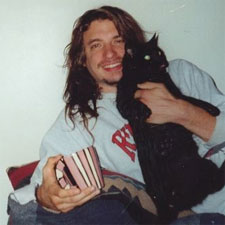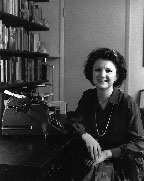War Poetry Contest 2004
Congratulations to the winners of our 2004 poetry contest on the theme of war!
Honorable Mention $50
- Pamela G. Barnes, Sixty-Two Haikus on World War II
- Jennifer Emrick, Industrial Flower in the Ash Field
- Scott Ennis, The Bullet’s Tale
- G. Lloyd Helm, Lucifer on Air Strikes
- Laura Johnson, Blood and Milk: the ‘36 Transmission
- Andrew E. Kalnick, Bombers’ Moon, Ashland Overpass
- S.W. Rickett, Operation Gomorrah
- Viktor Tichy, Blue Eyes and Brandy
- S. Brady Tucker, Whirligig
- Rik Wilkinson, Letters for a Grandchild
Finalists
- Jack Barrack, Bomber Dump, Massacre
- Marilyn Bates, War Zone of the Heart
- Angie Chuang, Tet Lion Dance
- Diane Cockburn, On Pelion Beach
- William Conelly, R&R
- Michele F. Cooper, Curdling
- Amy Cramer, Independence Day, 1967
- Diane E. Dees, Update on Afghanistan
- Deborah DeNicola, The Kiss
- Michelle Gillett, Detonations, Victory Garden
- Edward Wright Haile, Gaines’s Mill
- Dudley Hiles, Hands of War
- Victor Lodato, The Bicycle Hearse
- Lisa Suhair Majaj, What She Said
- Jim McGarrah, Museum of Hostages
- Michael Perez, American Poem
- Larry Wells, Life’s Picture History
- Andy Young, Getting the news in Arabic, To think of Madrid, March 11
Thanks to everyone who entered our third annual War Poetry Contest. We received 788 entries of one to three poems each. As always, there were far more talented entrants than prizes to go around. We commend you for giving serious thought to this all-too-timely topic and sharing your heartfelt efforts with us.
Criteria
Every year, I'm looking for the poem with that perfect mix of assured craftsmanship, humane wisdom, fresh and musical language, and memorable anecdotes. The ideal poem doesn't take too long to build momentum, sustains its quality throughout, and works up to an ending that makes the journey meaningful and worthwhile. This year, I've created a special "Advice for Contestants" page to help you improve your chances in this and other contests you might enter.
More than in past years, this time around I was eager for poems that grappled with contemporary issues, especially the current conflicts in the Middle East. The unique features of 21st-century warfare need a literary voice all their own. These include the empowering or dehumanizing effects of technology and the media; the fact that war nowadays is largely waged against civilian targets, often from a distance; and the violent rejection of Western liberal ideology by traditionalist Islamic cultures that we simultaneously strive to enlighten and to defeat. Our winners illuminate these subjects in poems that exert moral force without self-righteousness.
The Judging Process
In the first round, I read all the poems through once, flagging any that seemed to deserve another look. At this stage, I gave every poem the benefit of the doubt. I didn't keep a tally, but I'd say that 10-20% survived the first cut. Then I did two more rounds of selection, eliminating poems each time, till I had a shortlist of about 60 poems. Then I reread those poems many times, considering their strengths and weaknesses, until I felt secure in my identification of the 31 poems that would be winners and finalists. (We were prepared to have anywhere between 15 and 20 finalists, and decided on 18 this year.) Hearing the top contenders read aloud enabled me to determine the ultimate ranking. Judging is anonymous; the poets' names are withheld from me until the final decisions have been made.
My major dilemma this year was that those 31 poems are of nearly equal literary quality, though they have different strengths and weaknesses. Some stand out for their beautiful imagery, others for their compelling stories, still others for their satisfying endings, and many need a little more revision to make them perfect. The winners are those that most effectively transported me to a new place, by means of unforgettable scenes and uncomfortable truths that linger in the memory.
The Winners
The chilling conclusion of Robert Hill Long's "Gulf War News Sign-Off, With Video Tricks" seized my attention on the first reading. The poem takes us on a missile-guided tour of the American subconscious. Aggression, drunken satiation, fear and insatiable desire morph into one another like scenes from a music video. Many screeds have been written about how television dehumanizes us and turns violence into entertainment. "Gulf War News Sign-Off" rises above the easy self-righteousness of that trope by implicating its speaker, and all of us who see through his eyes, in the temptations that the poem so coldly surveys. The poem both satisfies our fantasies of power and shows how empty they are.
Rob Cook's "The Song of Iraq", like the fierce, exotic desert culture it depicts, resists tidy rational analysis. "I saw the sheik," the narrator tells us in each line, but seeing does not mean transparent understanding. This mysterious sheik is at turns martyr and brutal patriarch, devourer of soldiers and rescuer of his impoverished, suffering people. His surreal activities make him larger than life, a charismatic spiritual force to fear and (perhaps reluctantly) admire. Like the elusive Osama bin Laden, the sheik's powerful presence is unavoidable. Yet the poem's long list of bizarre sightings does nothing to help us "capture" him, instead only increasing his mythic status.
Marsha Truman Cooper's "You Had To Be There" lets us hear the simple voice of the Everyman soldier, who loses his innocence in one absurd, terrifying moment of combat. The poem deftly blends tragedy and farce. The sense of humor that sustains the soldiers' boyish camaraderie turns into shell-shocked hysteria, and then into bitter irony. The speaker can no longer take his own culture at face value, as even a bowl of cornflakes now implicates memories of atrocities.
Once again, I am grateful to have found so many talented poets. Keep writing and reflecting on the issues that matter most. Our future depends on it.
Contest Judge

Jendi Reiter
Jendi Reiter is vice president of Winning Writers, editor of The Best Free Literary Contests, and oversees the Winning Writers literary contests. Jendi is the author of the novel Origin Story (Saddle Road Press, 2024), the short story collection An Incomplete List of My Wishes (Sunshot Press, 2018), the novel Two Natures (Saddle Road Press, 2016), the poetry collections Made Man (Little Red Tree Publishing, 2022), Bullies in Love (Little Red Tree Publishing, 2015), and A Talent for Sadness (Turning Point Books, 2003), and the award-winning poetry chapbooks Swallow (Amsterdam Press, 2009) and Barbie at 50 (Cervena Barva Press, 2010). Awards include a Massachusetts Cultural Council Artists' Grant for Poetry, the 2016 New Letters Prize for Fiction, the 2016 Rainbow Award for Best Gay Contemporary Fiction, the 2015 Wag's Revue Poetry Prize, the 2013 Little Red Tree International Poetry Prize, the 2012 Betsy Colquitt Award for Poetry from Descant magazine, the 2011 James Knudsen Editor's Prize in Fiction from Bayou Magazine, the 2011 OSA Enizagam Award for Fiction, the 2010 Anderbo Poetry Prize, and second prize in the 2010 Iowa Review Awards for Fiction. Jendi's work has appeared in Poetry, The New Criterion, Mudfish, Passages North, Cutthroat, Best American Poetry 1990, and many other publications. See their interview in RoundPier. Photo by Ezra Autumn Wilde










